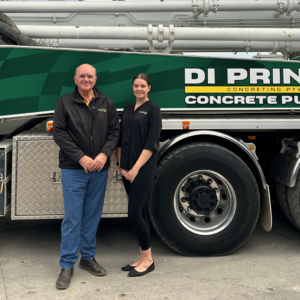In the ever-evolving digital landscape, technology has contributed greatly to the success of Australian businesses across varied operating size and in diverse industries. Alongside the critical work staff perform, technology remains important to increasing growth, efficiency and operations. Managing a business presents many challenges, and one key factor for success is staying informed about emerging technologies and their potential. By keeping updated about new innovations, businesses can gain a competitive edge and secure their future. We explore how digital transformation can benefit business and share 6 other technology trends that have emerged in business.
Accessible digital transformation in business
There are various areas of a business that can benefit from digitising, and one in particular that’s become more achievable is document management. With digital document management, your documents can be automatically filed, stored and sent for approval without delay, helping staff maximise their time and resources. Every document that passed through your business is important, which is why transitioning from manual processes and hardcopy document management to a digital document solution is a worthy investment.
Emerging trends:
- Security: Protecting documents is paramount. By relying on hardcopy and manual handling, your documents can be left exposed – how often have staff left their documents in the print tray? As interest in overall business security increases, a logical step is to start with digitising the document process.
- Compliance: In a similar light to security, businesses are striving towards meeting compliance requirements that serve governing bodies and their customers/clients. With an automated document workflow, the right documents can be actioned correctly, and saved in a consistent manner.

6 other trending technologies in business
Artificial Intelligence (AI):
While ChatGPT has become a popular AI tool used by 100+ million users, the potential for AI extends beyond language response. Through AI, businesses can automate repetitive tasks, analyse data and help the decision-making process, all of which have historically been manual. Some common examples include customer service chatbots, personalising marketing campaigns, data analysis and even automate processes.
Emerging trends:
- Investment and adoption: According to a recent global workforce survey conducted by PwC, over 50% consider AI to have a positive impact on their career in the near future, with the top sentiments indicating AI will aid in productivity/efficiency at work or allow new skills to be learnt
- AI-enhanced cybersecurity: Using AI to accelerate the detection of cyberattacks, handle large volumes of data and deploy countermeasures
- Automation: Further developments in automating repetitive processes and tasks, such as through robotic process automation (RPA)
Internet of Things (IoT)
The ‘Internet of Things’ refers to the network of physical objects (devices, appliances, cars and other ‘things’) that are embedded with sensors, software and other technologies that allow for internet connection and data exchange, such as smart devices like a Ring Video Doorbell or an Apple Watch. In business, ‘industrial’ IoT provides a range of technology to help improve efficiency and operations. For instance, production-line sensors to detect failures and maintenance.
Emerging trends
- Operations optimisation: Improving the day-to-day management of staff and assets in the manufacturing and construction industry.
- Healthcare: Monitoring and treating illness using compatible devices, including further commonality of wearable medical devices, smart home devices and interactive displays.
- Smart Cities: Smart cities leverage technology to improve the community and rely on IoT to do so. Smart cities can be capable of improving safety, energy efficiency, traffic congestion and promoting sustainability.
Virtual Reality and Augmented Reality (VR/AR)
VR and AR are immersive technologies that create realistic experiences for the observer. In simple terms, VR technology creates a simulated environment (such as in a video game via headset) whereas, AR overlays digital content onto real-life objects. In business, the key benefit of these technologies is that they allow customers to see or try products before they commit to purchase – helping make more informed and optimistic purchases.
Emerging trends:
- AR in eCommerce: Customers will be more likely to purchase from a business offering an AR experience. According to recent research, 64% of survey respondents believe using AR in their shopping experience would increase brand loyalty.
- VR in training: Using a digital twin, which is a digital replica that mirrors the characteristics, behaviour, and functionality of it’s a physical object in real-time, training and education can be obtained virtually.
5G Connectivity
While Internet connectivity is typically not hard to establish, wireless connectivity like 5G promotes faster network speeds and increased capacity. When applied to businesses, it can strengthen access to information in remote areas, enable real-time data analytics (such as through IoT devices) and make remote work possible. Several business types can benefit from 5G technology, including manufacturing, healthcare, transportation and logistics, among more.
Emerging trends:
Network expansion: Further rollout will increase mobile connectivity with new technologies and services, particularly IoT devices and AI. Through this expansion, businesses will be able to improve efficiencies and streamline their operations.
Some use cases where 5G can have impact include:
- Healthcare through continuous communication with patient and doctors, more health platforms powered by 5G, improved telemedicine, drone-transported medical equipment and treatment.
- Waste and water management via smart meters, smart grids and sensors
- Enhancing industrial manufacturing by wirelessly connecting machinery and helping increase production line speeds.
Edge Computing
Edge computing is the practice of processing and analysing data closer to where it originates from, allowing for increased speed and capacity. It helps businesses by reducing latency (delay or lag), improving real-time information access and enhancing data privacy and security.
Emerging trend:
- Smart shelving: Smart shelves use sensors and camera to personalise the shopping experience for customers and monitor product inventory via shelving. Another example of IoT technology, these shelves process data locally rather than from a central server. This emerging trend is found increasingly in supply chain and assisting warehouses carrying larger volumes.
Blockchain
According to IBM, a blockchain is a ‘shared, immutable ledger’ that records transactions and tracks assets in a business network. Through blockchain, both tangible and intangible (E.g. patents or branding) assets can be tracked and traded, which can reduce risks and costs for business. A common example of a blockchain is cryptocurrency.
Emerging trends:
- International trade: Smart contracts are like computer programs that run automatically when certain conditions are met and are stored on a blockchain. They are mainly used to make agreements more efficient by removing the need for middlemen and delays.
- Government: The Australian Government has developed the National Blockchain Roadmap to boost the growing blockchain industry globally. In conjunction with supply chain, credentialing, cybersecurity and RegTech (regulatory Technology) groups, this Roadmap will help connect solutions with industries.
What new technology trends can help your business?
Technology has become a vital component in the success of Australian businesses, despite it constantly changing. Staying informed about trending technology and its potential for your business is one way to remain competitive and pave the way for its future. What’s next for your business?








